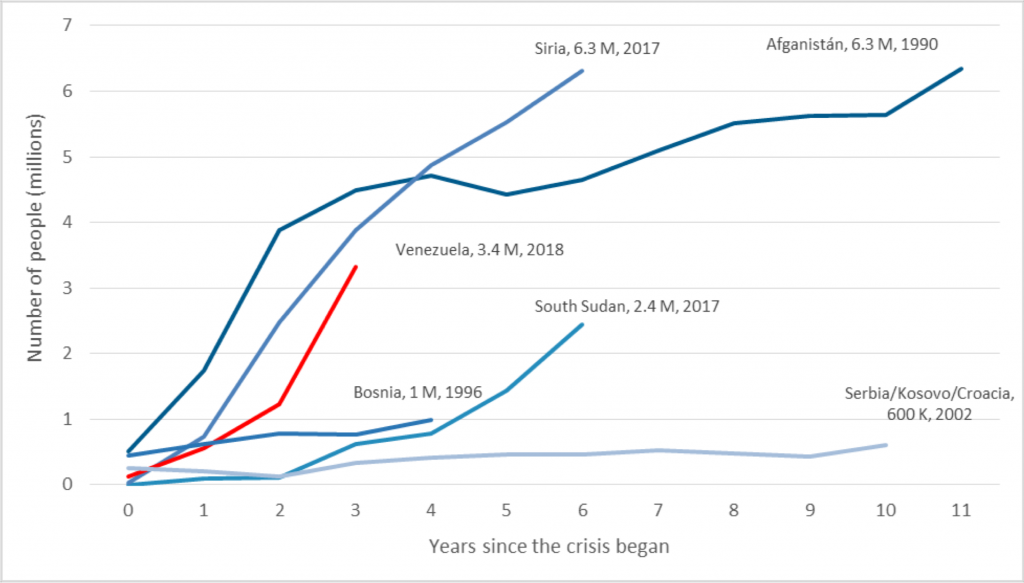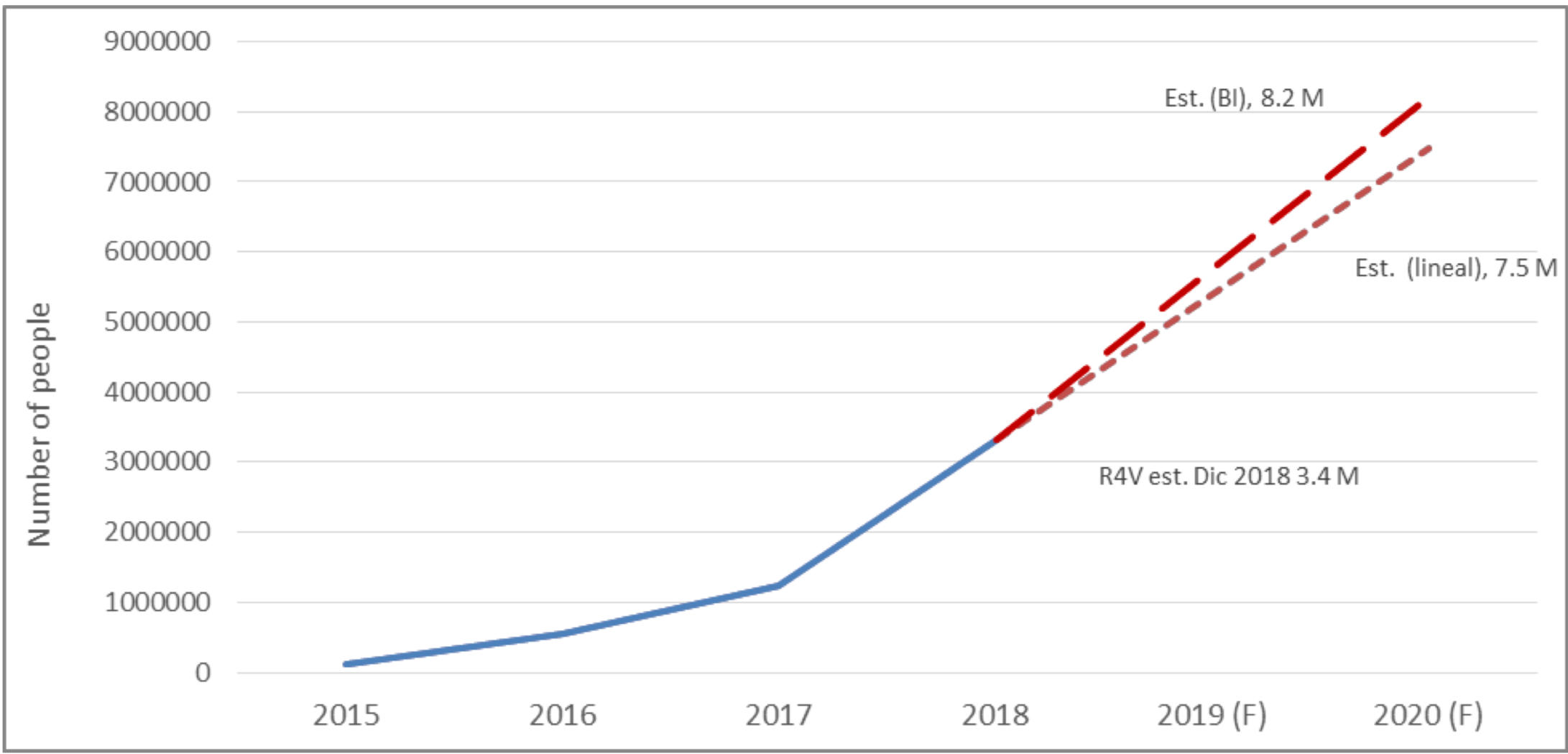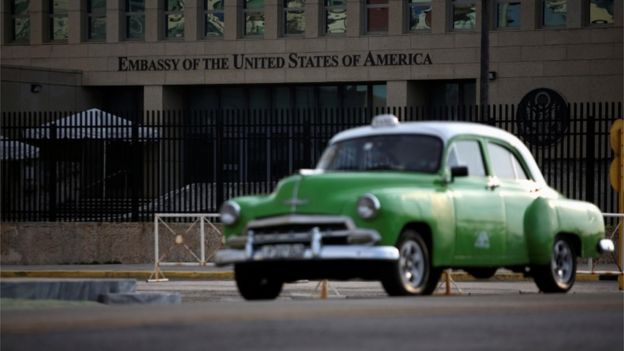Class began with the LA in the news by Joseph Z. The article was about a rejected bill by the Miami County Commission, that would have helped to reunite Cuban immigrant families. This article is an example of how LA news coverage in the US depends on regionality. https://www.miamiherald.com/news/local/community/miami-dade/article237555054.html
The topic of the class was modern Venezuela and its mass migration issue. Important questions to think about are:
- Push/Pull factors—Why do people leave?
- What information do we have right now about the crisis?
- How is it portrayed by different news outlets?
- What is the OAS approach and what are its implications?
In addition, here are some of the graphs that we looked at, displayed by the OAS:

Source: UNHCR Portal (https://data2.unhcr.org/en/situations) and IOM/UNHCR portal for monitoring the Venezuelan situation by R4V (https://r4v.info/es/situations/platform)

Source: IOM/UNHCR portal for monitoring the Venezuelan situation by R4V https://r4v.info/es/situations/platform); Bahar y Barrios 2018 (https://www.brookings.edu/blog/up-front/2018/12/10/how-many-more-migrants-and-refugees-can-we-expect-out-of-venezuela/)
Overall, the factors causing much of the migration include:
- Humanitarian Crisis
- No clean water
- Shortage of food
- Shortage of medicine
- Violence
- Organized crime
- State violence
- Inflation
- Little effort by the state to solve the issue
Helpful links:
Somos Panas – https://somospanascolombia.com

